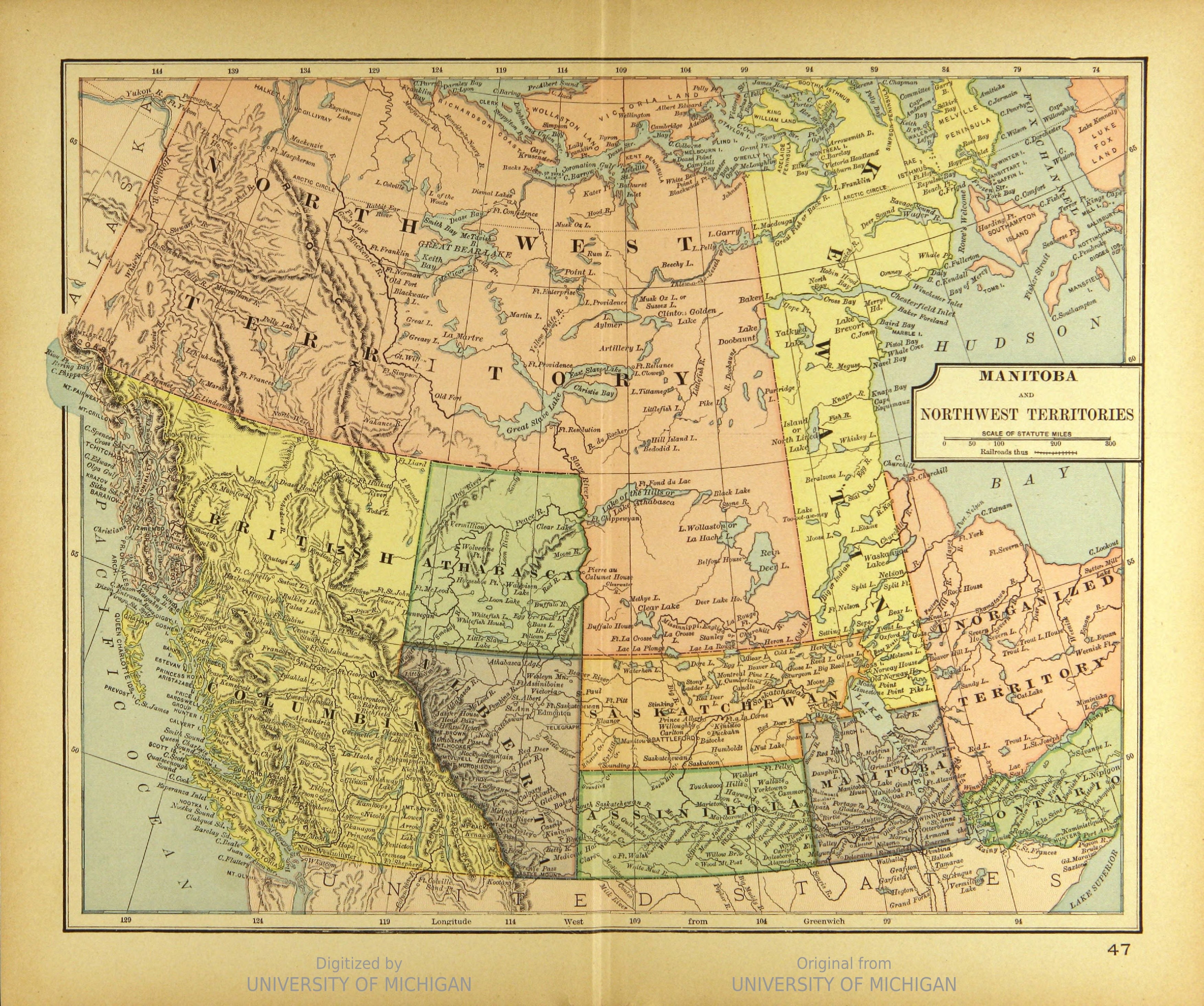|
Northland Bank
The Northland Bank was an Alberta-based Canadian bank that failed in 1985. It was incorporated in 1974. It failed and was closed by the Canadian government shortly after the failure, also in 1985, of the Canadian Commercial Bank. The failures of both banks were the subject of a Commission of Inquiry headed by Supreme Court of Canada Justice Willard Estey Willard Zebedee "Bud" Estey (October 10, 1919 – January 25, 2002) was a Canadian justice of the Supreme Court of Canada. Estey was born in Saskatoon, Saskatchewan. He was the son of James Wilfred Estey, a puisne justice of the Supreme C ..., who issued his report in 1986. References Further reading * Banks established in 1974 Defunct banks of Canada Bank failures Banks disestablished in 1985 1974 establishments in Alberta 1985 disestablishments in Alberta Canadian companies disestablished in 1985 Canadian companies established in 1974 {{Canada-corp-stub ... [...More Info...] [...Related Items...] OR: [Wikipedia] [Google] [Baidu] |
Bank
A bank is a financial institution that accepts deposits from the public and creates a demand deposit while simultaneously making loans. Lending activities can be directly performed by the bank or indirectly through capital markets. Because banks play an important role in financial stability and the economy of a country, most jurisdictions exercise a high degree of regulation over banks. Most countries have institutionalized a system known as fractional reserve banking, under which banks hold liquid assets equal to only a portion of their current liabilities. In addition to other regulations intended to ensure liquidity, banks are generally subject to minimum capital requirements based on an international set of capital standards, the Basel Accords. Banking in its modern sense evolved in the fourteenth century in the prosperous cities of Renaissance Italy but in many ways functioned as a continuation of ideas and concepts of credit and lending that had their roots in the a ... [...More Info...] [...Related Items...] OR: [Wikipedia] [Google] [Baidu] |
Bank Failure
A bank failure occurs when a bank is unable to meet its obligations to its depositors or other creditors because it has become insolvent or too illiquid to meet its liabilities. A bank usually fails economically when the market value of its assets declines to a value that is less than the market value of its liabilities. The insolvent bank either borrows from other solvent banks or sells its assets at a lower price than its market value to generate liquid money to pay its depositors on demand. The inability of the solvent banks to lend liquid money to the insolvent bank creates a bank panic among the depositors as more depositors try to take out cash deposits from the bank. As such, the bank is unable to fulfill the demands of all of its depositors on time. A bank may be taken over by the regulating government agency if its shareholders' equity are below the regulatory minimum. The failure of a bank is generally considered to be of more importance than the failure of other types of ... [...More Info...] [...Related Items...] OR: [Wikipedia] [Google] [Baidu] |
Calgary
Calgary ( ) is the largest city in the western Canadian province of Alberta and the largest metro area of the three Prairie Provinces. As of 2021, the city proper had a population of 1,306,784 and a metropolitan population of 1,481,806, making it the third-largest city and fifth-largest metropolitan area in Canada. Calgary is situated at the confluence of the Bow River and the Elbow River in the south of the province, in the transitional area between the Rocky Mountain Foothills and the Canadian Prairies, about east of the front ranges of the Canadian Rockies, roughly south of the provincial capital of Edmonton and approximately north of the Canada–United States border. The city anchors the south end of the Statistics Canada-defined urban area, the Calgary–Edmonton Corridor. Calgary's economy includes activity in the energy, financial services, film and television, transportation and logistics, technology, manufacturing, aerospace, health and wellness, retail, and ... [...More Info...] [...Related Items...] OR: [Wikipedia] [Google] [Baidu] |
Alberta
Alberta ( ) is one of the thirteen provinces and territories of Canada. It is part of Western Canada and is one of the three prairie provinces. Alberta is bordered by British Columbia to the west, Saskatchewan to the east, the Northwest Territories (NWT) to the north, and the U.S. state of Montana to the south. It is one of the only two landlocked provinces in Canada (Saskatchewan being the other). The eastern part of the province is occupied by the Great Plains, while the western part borders the Rocky Mountains. The province has a predominantly continental climate but experiences quick temperature changes due to air aridity. Seasonal temperature swings are less pronounced in western Alberta due to occasional Chinook winds. Alberta is the fourth largest province by area at , and the fourth most populous, being home to 4,262,635 people. Alberta's capital is Edmonton, while Calgary is its largest city. The two are Alberta's largest census metropolitan areas. More tha ... [...More Info...] [...Related Items...] OR: [Wikipedia] [Google] [Baidu] |
Canada
Canada is a country in North America. Its ten provinces and three territories extend from the Atlantic Ocean to the Pacific Ocean and northward into the Arctic Ocean, covering over , making it the world's second-largest country by total area. Its southern and western border with the United States, stretching , is the world's longest binational land border. Canada's capital is Ottawa, and its three largest metropolitan areas are Toronto, Montreal, and Vancouver. Indigenous peoples have continuously inhabited what is now Canada for thousands of years. Beginning in the 16th century, British and French expeditions explored and later settled along the Atlantic coast. As a consequence of various armed conflicts, France ceded nearly all of its colonies in North America in 1763. In 1867, with the union of three British North American colonies through Confederation, Canada was formed as a federal dominion of four provinces. This began an accretion of provinces an ... [...More Info...] [...Related Items...] OR: [Wikipedia] [Google] [Baidu] |
Western Canada
Western Canada, also referred to as the Western provinces, Canadian West or the Western provinces of Canada, and commonly known within Canada as the West, is a Canadian region that includes the four western provinces just north of the Canada–United States border namely (from west to east) British Columbia, Alberta, Saskatchewan and Manitoba. The people of the region are often referred to as "Western Canadians" or "Westerners", and though diverse from province to province are largely seen as being collectively distinct from other Canadians along cultural, linguistic, socioeconomic, geographic, and political lines. They account for approximately 32% of Canada's total population. The region is further subdivided geographically and culturally between British Columbia, which is mostly on the western side of the Canadian Rockies and often referred to as the " west coast", and the "Prairie Provinces" (commonly known as "the Prairies"), which include those provinces on the easter ... [...More Info...] [...Related Items...] OR: [Wikipedia] [Google] [Baidu] |
Bank
A bank is a financial institution that accepts deposits from the public and creates a demand deposit while simultaneously making loans. Lending activities can be directly performed by the bank or indirectly through capital markets. Because banks play an important role in financial stability and the economy of a country, most jurisdictions exercise a high degree of regulation over banks. Most countries have institutionalized a system known as fractional reserve banking, under which banks hold liquid assets equal to only a portion of their current liabilities. In addition to other regulations intended to ensure liquidity, banks are generally subject to minimum capital requirements based on an international set of capital standards, the Basel Accords. Banking in its modern sense evolved in the fourteenth century in the prosperous cities of Renaissance Italy but in many ways functioned as a continuation of ideas and concepts of credit and lending that had their roots in the a ... [...More Info...] [...Related Items...] OR: [Wikipedia] [Google] [Baidu] |
Canadian Commercial Bank
The Canadian Commercial Bank (CCB) was a bank based in Edmonton, Alberta, Canada which failed in 1985. It received its parliamentary charter in 1975 and established its head office in Edmonton. The bank was privately owned and operated as a wholesale commercial bank. History The Canadian Commercial Bank officially began operations in July 1976, with CDN$22 million of capital. From 1976 to 1982, it operated profitably—usually in the top quartile of Canadian banking. It built a new headquarters in Edmonton, the Canadian Commercial Bank Tower in 1982. In early 1985, after investing heavily in real estate and energy sector companies, the bank became insolvent during a period of rising interest rates and a falling Canadian dollar. The federal government arranged a $255 million bailout ($ billion today) in an effort to keep the failing institution afloat. In spite of this, the bank ceased operations on September 3, 1985. It was the largest bank failure in Canadian history and the ... [...More Info...] [...Related Items...] OR: [Wikipedia] [Google] [Baidu] |
Willard Estey
Willard Zebedee "Bud" Estey (October 10, 1919 – January 25, 2002) was a Canadian justice of the Supreme Court of Canada. Estey was born in Saskatoon, Saskatchewan. He was the son of James Wilfred Estey, a puisne justice of the Supreme Court of Canada, and Muriel Baldwin. He studied at the University of Saskatchewan earning a BA in 1940 and an LL.B in 1942. He joined the armed forces and fought during World War II, including acting as a Canadian Observer with US forces during the battle for Okinawa. Upon returning to Canada went to study at Harvard Law School and received a LL.M in 1946. From 1946 he taught at the University of Saskatchewan and then moved to Ontario the following year to practice law. In 1973, he was appointed to the Court of Appeal for Ontario and two years later was named Chief Justice of the High Court of Justice of Ontario. He became Chief Justice of Ontario in 1976. He was appointed to the Supreme Court of Canada in 1977 to replace Wilfred Judso ... [...More Info...] [...Related Items...] OR: [Wikipedia] [Google] [Baidu] |
Banks Established In 1974
A bank is a financial institution that accepts deposits from the public and creates a demand deposit while simultaneously making loans. Lending activities can be directly performed by the bank or indirectly through capital markets. Because banks play an important role in financial stability and the economy of a country, most jurisdictions exercise a high degree of regulation over banks. Most countries have institutionalized a system known as fractional reserve banking, under which banks hold liquid assets equal to only a portion of their current liabilities. In addition to other regulations intended to ensure liquidity, banks are generally subject to minimum capital requirements based on an international set of capital standards, the Basel Accords. Banking in its modern sense evolved in the fourteenth century in the prosperous cities of Renaissance Italy but in many ways functioned as a continuation of ideas and concepts of credit and lending that had their roots in the anc ... [...More Info...] [...Related Items...] OR: [Wikipedia] [Google] [Baidu] |
Defunct Banks Of Canada
{{Disambiguation ...
Defunct (no longer in use or active) may refer to: * ''Defunct'' (video game), 2014 * Zombie process or defunct process, in Unix-like operating systems See also * * :Former entities * End-of-life product * Obsolescence Obsolescence is the state of being which occurs when an object, service, or practice is no longer maintained or required even though it may still be in good working order. It usually happens when something that is more efficient or less risky r ... [...More Info...] [...Related Items...] OR: [Wikipedia] [Google] [Baidu] |
Bank Failures
A bank failure occurs when a bank is unable to meet its obligations to its depositors or other creditors because it has become insolvent or too illiquid to meet its liabilities. A bank usually fails economically when the market value of its assets declines to a value that is less than the market value of its liabilities. The insolvent bank either borrows from other solvent banks or sells its assets at a lower price than its market value to generate liquid money to pay its depositors on demand. The inability of the solvent banks to lend liquid money to the insolvent bank creates a bank panic among the depositors as more depositors try to take out cash deposits from the bank. As such, the bank is unable to fulfill the demands of all of its depositors on time. A bank may be taken over by the regulating government agency if its shareholders' equity are below the regulatory minimum. The failure of a bank is generally considered to be of more importance than the failure of other types of ... [...More Info...] [...Related Items...] OR: [Wikipedia] [Google] [Baidu] |






